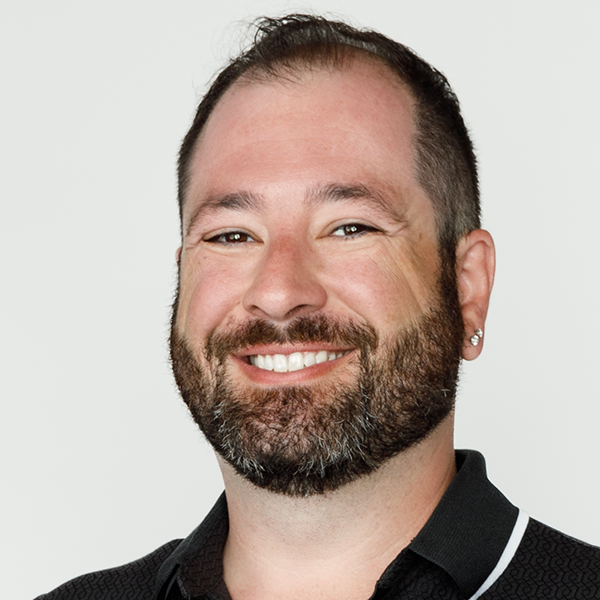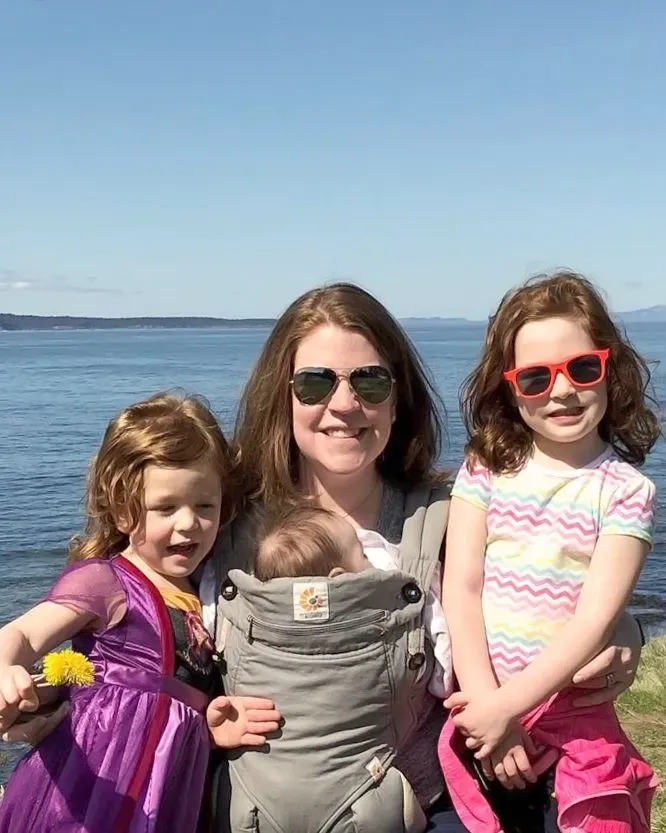
Job Interviews
After years of double-digit growth, the locum tenens industry is entering a new phase marked by steady and strategic expansion.
The new phase holds a dynamic shift: hospitals are integrating locums as a strategic solution for navigating workforce shortages, rural care gaps and provider burnout. In turn, physicians are increasingly drawn to the flexibility, autonomy and career control that locum tenens can provide.
Provider Solutions & Development (PS&D) operates a distinctly focused locum tenens program serving Providence and its seven-state footprint, streamlining the locums process across more than 51 hospitals.
This centralized approach ensures consistency, transparency and alignment with Providence's mission-driven care model. At the heart of this effort is Nick Ball, Senior Program Manager of Locum tenens at PS&D.
With deep experience navigating the complexities of locums staffing and a personal story rooted in gratitude for the care his own family received, Nick brings both heart and insight into the conversation about what's next for locum tenens and why it matters more than ever.

Nick Ball, Senior Program Manager of Locum tenens at PS&D
PS&D: How would you describe your role within the PS&D Locum Tenens program, and what sets your team apart?
Nick Ball: I'm the Senior Program Manager of Locum Tenens Administration, and I oversee a centralized team that supports all of Providence — 51 hospitals across seven states. Our team is small but mighty, and what sets us apart is very few health systems have a centralized locums team on our scale. Because of that, we've been able to negotiate favorable contract terms/rates and build strong, mutually beneficial relationships with agencies while in favor of the health systems. It frees the regional partners we work with to do what they do best. So rather than being that "necessary evil" that is added to their plate, we take on a lot of that process and navigate it for them. At the end of the day, it's about ensuring patients get seen and that we're ensuring consistent commitment to quality.
PS&D: Why is locum tenens work meaningful and rewarding for you? What's your "why"?
Nick Ball: I grew up with family and parents who had serious medical issues, and I know there were many times I would have lost them if they hadn't had access to proper care. I'm sure some of the doctors who treated them were locum tenens providers. We lived in underserved areas like Reno and later the Columbia Gorge (a rural community), so having that care in place meant I had my family when I really needed to the most. That's why this work matters to me.
PS&D: How has the demand for Locum Tenens changed in recent years? What do you see as the main drivers of change?
Nick Ball: Within Providence, we've seen year-over-year growth in locum tenens utilization. Our centralized process makes it easier for regional partners to get care in place, and more individuals request our services than in the past — word spreads with a good program like this.
We're also seeing more demand in specialties and among APPs. Nationally, more health systems are moving toward a managed service provider (MSP) model, so rather than relying only on direct relationships with agencies, they are now moving in the ways of technology and using platforms to streamline staffing. It is causing agencies to think differently about their staffing models, their placement models and their partnerships.
I think we'll see some plateauing in the locums market, especially as systems improve recruitment. At Providence, we're methodical about opening searches, so our utilization will likely remain steady. Other systems might see a decline as they build internal recruitment capabilities and adopt more centralized models.
PS&D: What are the main reasons providers are choosing locum tenens assignments today and how is it evolving?
Nick Ball: I see three main groups: (1) New graduates who want flexibility, income and a chance to "try before they buy," (2) career locums who enjoy the road warrior lifestyle and (3) late-career providers who want to stay active without full-time commitments. We're seeing an increase in interest, especially from new graduates hitting the market. We're also seeing professionals enter that third group earlier than before.
PS&D: How is PS&D leveraging data analytics and AI to improve provider-facility matching? Tell me about some specific technology tools/examples that are being used today
Nick Ball: We use Locumsmart, which has provider matching and scoring features, but we haven't fully leveraged AI yet. Our process is still very relationship-driven and neutral. That will change in the future as we upgrade our systems.
We've used telehealth throughout several of our states, especially Texas and Alaska. We've used hybrid models where providers are on-site for one month and remote the next. It helps reduce travel costs and maintain continuity of care. It's even helped us keep some service lines open that might have otherwise gone dark.
PS&D: What specialties currently have the greatest need for locum tenens coverage and why?
Nick Ball: The "ologies" like Cardiology, Anesthesiology, Gastroenterology, Hematology/Oncology and Urology. Any kind of invasive or surgical specialty is also in high demand. That's because of financial pressures and limited candidate pools. Primary Care, which used to be a big focus, is now less commonly filled via locum tenens.
PS&D: How does salary/compensation for locum tenens physicians compare to traditional full-time roles? Is compensation a driving decision for providers who choose locums?
Nick Ball: Locums often earn more because they're 1099 contractors and not bound by fair market value rules. They negotiate directly with agencies and can request higher salary/compensation rates, which does drive them financially. They are responsible for their own taxes and insurance. In some states like California, APPs must now be W-2 employees, which changes the compensation model. Right now, there is a lot of flexibility and personal ownership from providers when they enter the locums space and talk about their compensation. This is why we are seeing a lot of new graduates going into this space.
PS&D: In a locum tenens environment, can providers have autonomy or flexibility over their assignments, locations and schedules?
Nick Ball: Absolutely. Being a locum tenens provider really does reinforce that work-life balance expectation. Providers choose when, where and how often they work. Agencies must get their approval before submitting them for roles. If someone only wants to work one week a month in rural areas, they can do that. It's all about autonomy.
PS&D: Do providers need to have soft skills like cultural competency and leadership to be successful in locums placements?
Nick Ball: Yes, these skills set up a locums provider for success. Cultural fit, adaptability and resilience are essential. Health systems should also communicate expectations clearly. These skills develop over time, especially for providers who are open to feedback and new environments.
PS&D: Do health systems provide support or training to providers during locums assignments, or are they expected to adapt independently?
Nick Ball: It varies. Some hospitals offer thorough onboarding and treat locums like family. Others expect providers to hit the ground running. Providers should ask about onboarding during interviews to ensure alignment with their comfort level. This is their opportunity to interview the health system as well and ask about onboarding, orientation, what their resources are going to be and the support services available, allowing them to determine their own comfort level and skill set through the process.
PS&D: The demand for rural locums is high. What are key points providers should consider when thinking about rural assignments?
Nick Ball: Really understanding your personal flexibility and comfort level with challenges as they arise with rural locations, often you're doing more with less and so you must be comfortable with that mentality. The list includes considerations like support services available, demographics, payer mix, travel logistics and personal safety and passion for serving underserved communities. Rural work can be challenging, but for many providers, it's also deeply fulfilling.
PS&D: What makes you hopeful and optimistic about the future of locum tenens?
Nick Ball: The perception of locums is changing. It's no longer seen as a "necessary evil" but as a strategic tool. Health systems are realizing that locums can support recruitment, prevent burnout and ensure continuity of care. I'm hopeful this proactive mindset will continue to grow.
Whether you're exploring your first assignment or considering locums as part of your future career path, PS&D is here to support you every step of the way. We help you understand the locums landscape and offer guidance to help you make informed decisions about your career path. Our recruiters are available to answer your questions, provide career insights, and help you think through whether locums is the right fit for your goals. With expertise across Providence's seven-state footprint, PS&D is committed to helping you navigate your career journey with clarity, transparency, and support.
We've helped thousands of physicians and advanced practice providers find their next opportunity. With hundreds of opportunities nationwide — and across a diverse range of healthcare partners and practices — we can help you find the right fit the first time. Reach out today.

Job Interviews

Telehealth

Rural Medicine